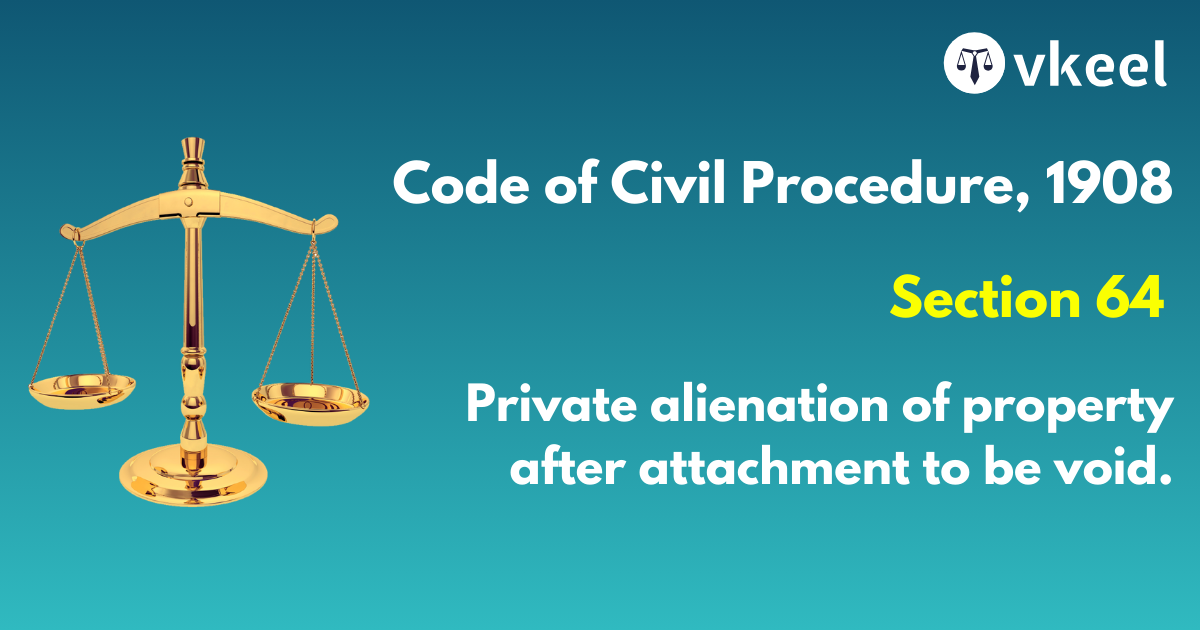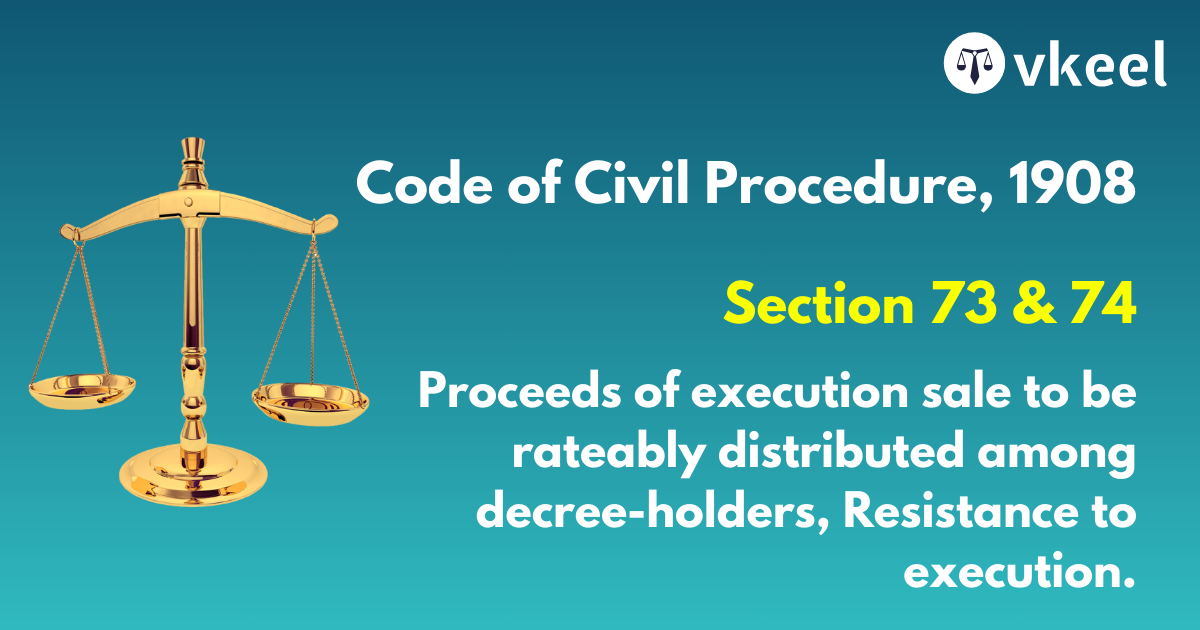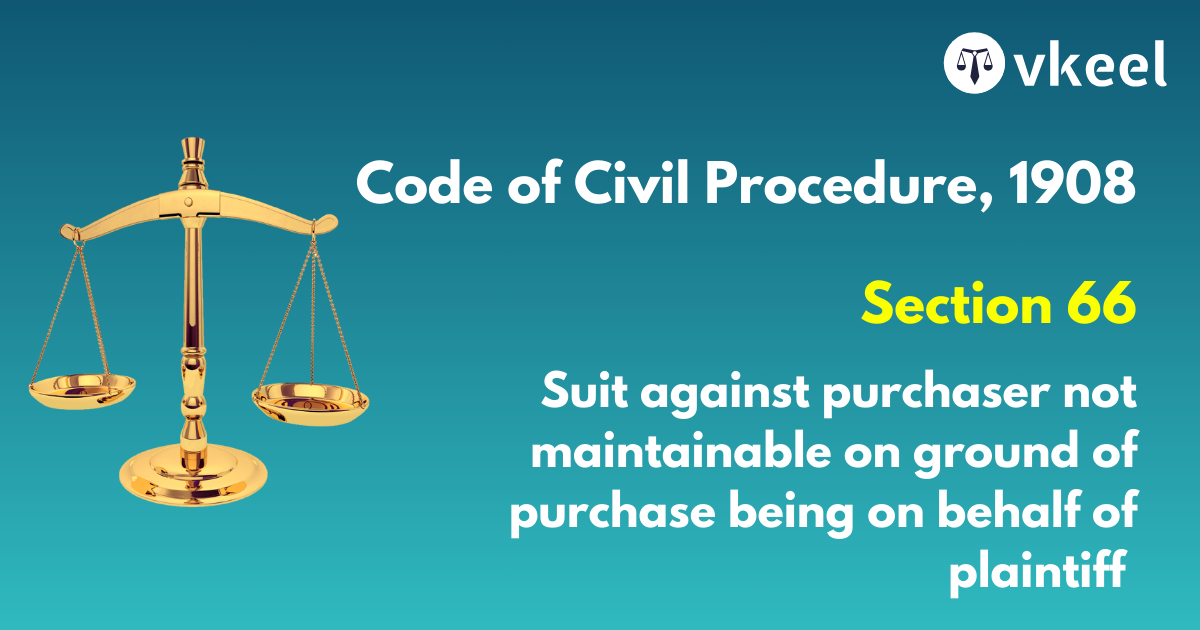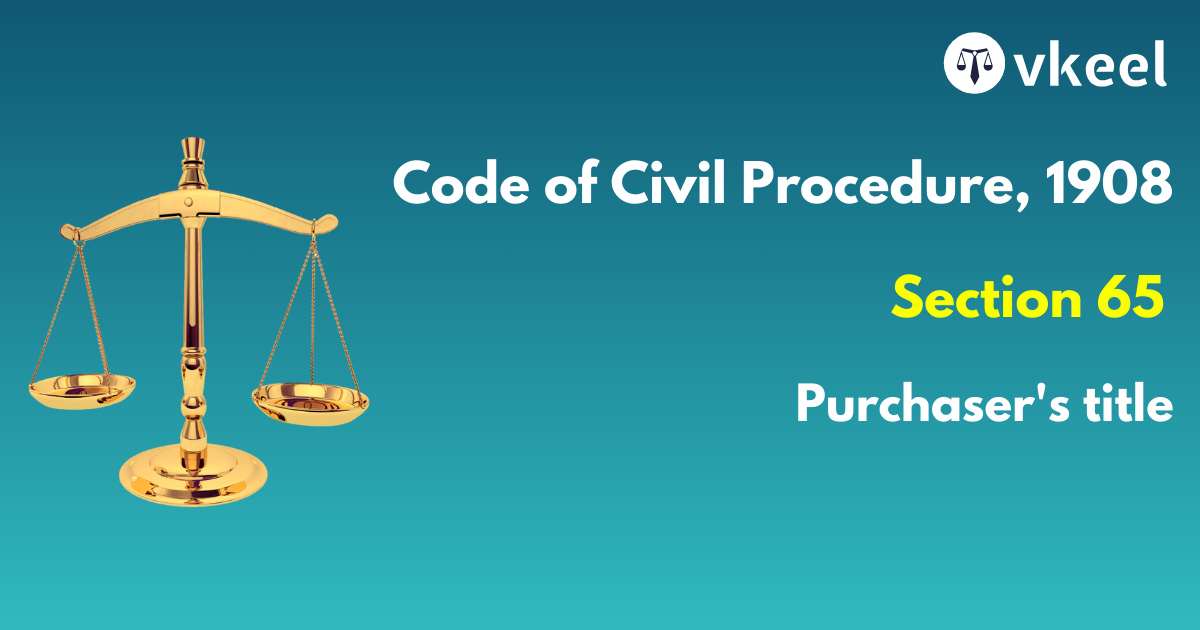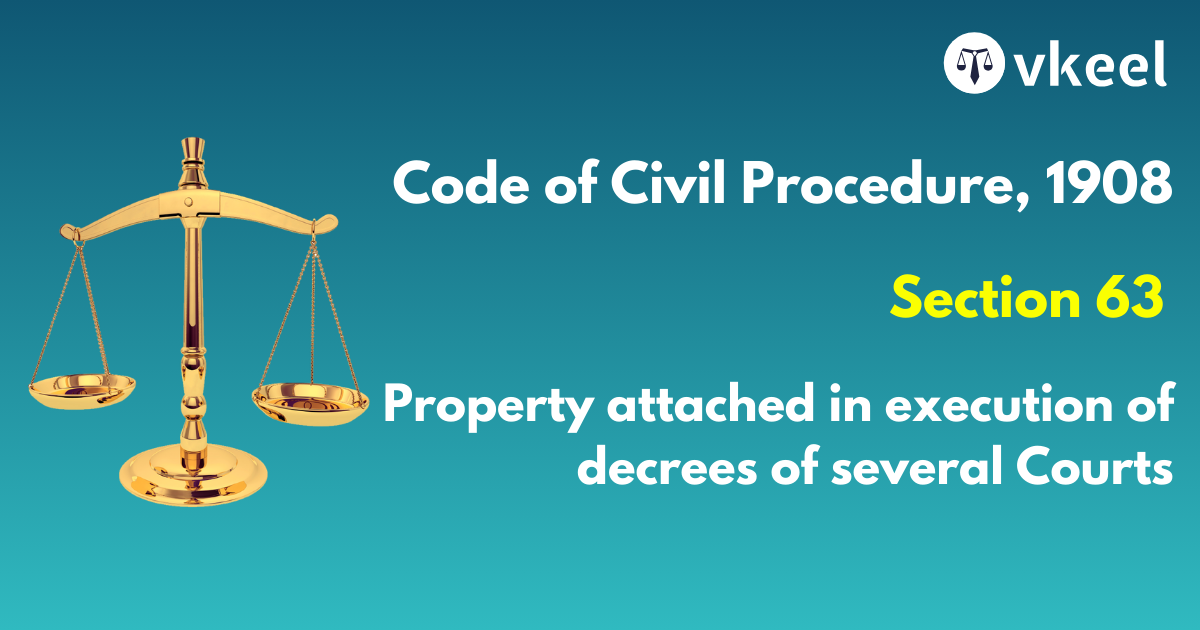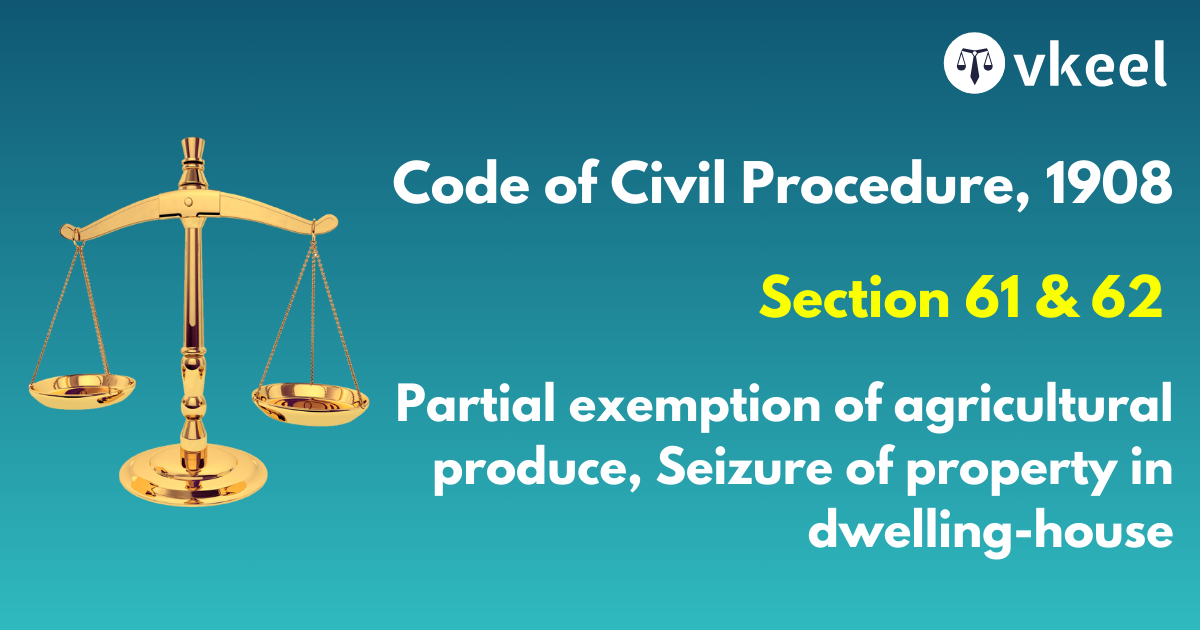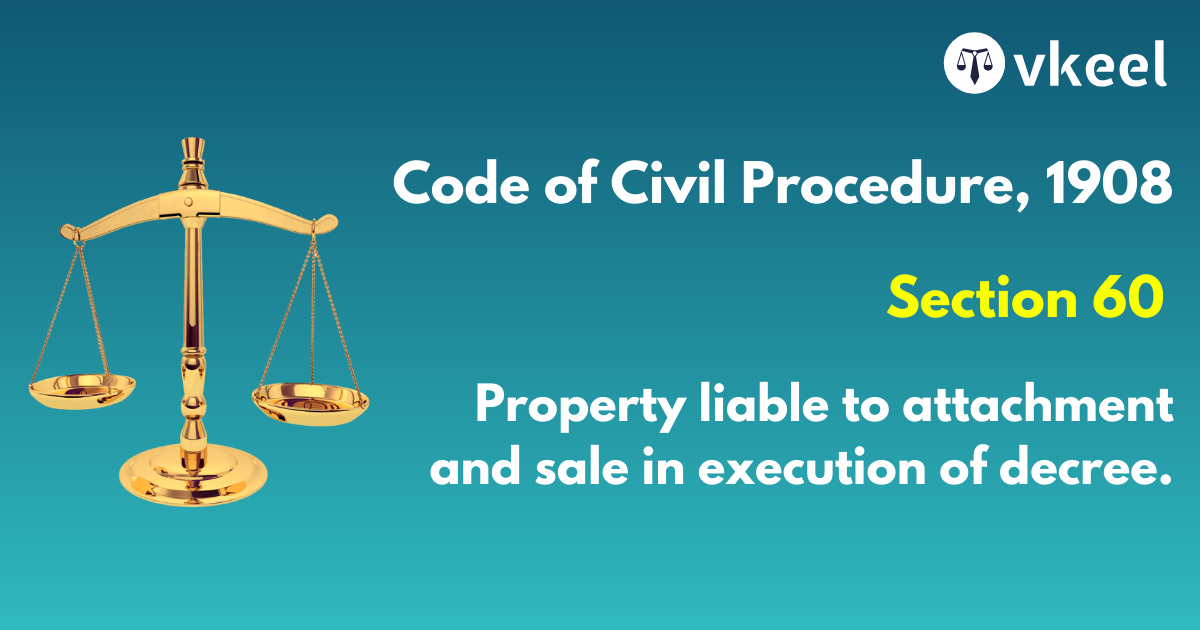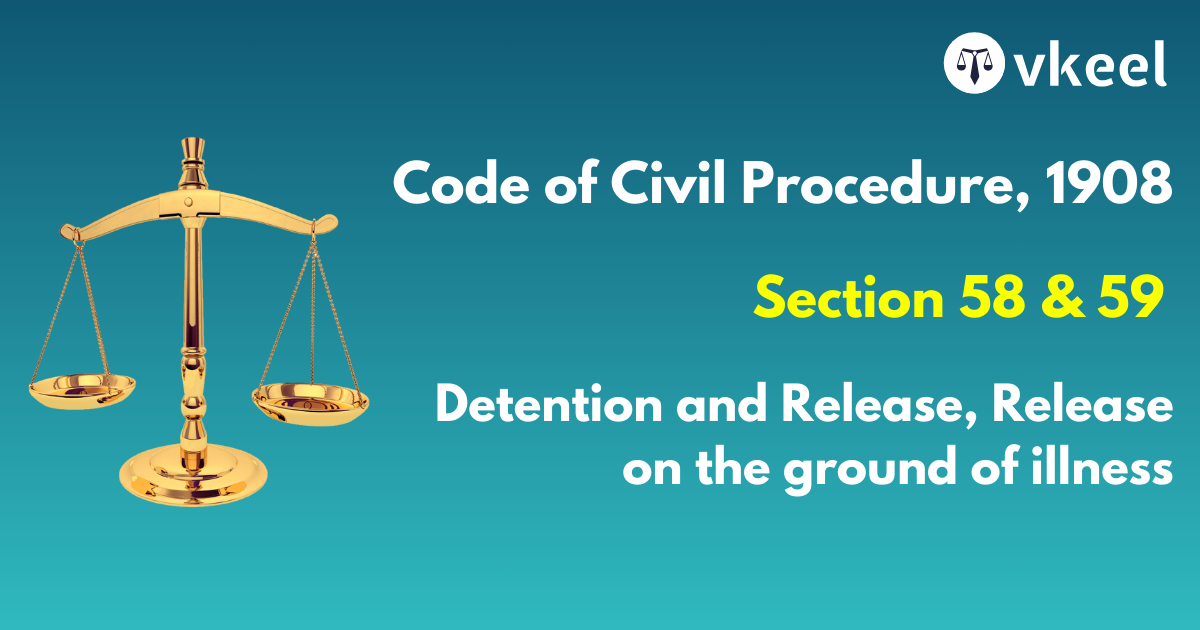Section 64 of the Code of Civil Procedure,1908
By Joy Puri
Introduction
Section 64 of the Code of Civil Procedure in its verbiage narrates about the effect of attachment of property.
Furthermore, it states that once a property is attached by a court in the execution of a decree, any private transfer or delivery of that property by the judgment debtor, or any other person acting on their behalf, becomes void against all claims enforceable under the attachment.
Section 64 of the Code of Civil Procedure,1908
Private alienation of property after attachment to be void.
(1) Where an attachment has been made, any private transfer or delivery of the property attached or of any interest therein and any payment to the judgment-debtor of any debt, dividend or other monies contrary to such attachment, shall be void as against all claims enforceable under the attachment.
(2) Nothing in this section shall apply to any private transfer or delivery of the property attached or of any interest therein, made in pursuance of any contract for such transfer or delivery entered into and registered before the attachment.
Explanation: For the purpose of this section, claims enforceable under an attachment include claims for the rateable distribution of assets.
Landmark Case Laws
Kaliammal Vs S Santha, 2003
Section 64 contemplates only one attachment and no other. Once an attachment is made, if there is any transfer or delivery of attached property contrary to such attachment, such a transfer would be void as against all claims enforceable under that attachment. The attachment, during the subsistence of which the transfer is effected or delivery of property is made, must be the same attachment under which all claims of the attaching creditor are enforced. Therefore, if at the time of enforcement of the claim, the attachment under which the claimant is enforced, is different from any earlier attachment, the attaching creditor cannot take advantage of the earlier attachment, particularly, when such an attachment has already ceased to exist for one reason or the other.
Avva Madhavi Latha Vs State of Andhra Pradesh, 2020
Section 64 CPC prohibits private alienation of property after attachment to be void, where an attachment has been made, any private transfer or delivery of the property attached or of any interest therein and any payment to the judgment-debtor of any debt, dividend or other moneys contrary to such attachment, shall be void as against all claims enforceable under the attachment.
Subbarao Vs Offl Receiver,1965
Section 64 makes it manifest that attachment has merely the effect of preventing private alienation to the prejudice of claims under the attachment. It conveys no title, charge, lien or priority in favour of the attaching creditor. It does not prevent a transfer by operation of law,such as involuntary sale under a decree of court or enforced execution.
Swamy HL Vs Lakshmamma, 2018
According to the section 64, any private transfer of the property attached contrary to such attachment shall be void as against all claim enforceable under the attachment. By virtue of sub-section (2) of section 64 of the CPC, which with effect from 1 July 2002, such a private transfer of the property attached would not affect any contract for such transfer or delivery entered into and registered before the attachment. Thus, by virtue of sub-section (2) of section 64 of the CPC, to avail any exemption from the transfer of property being declared as void, it is to be established that such a contract for transfer was not only entered into before the attachment, but, the said contract document was duly registered. Though section 64 of the CPC was intended to protect the attaching creditor, but if the subsequent conveyance is in pursuance of an agreement for sale which was before the attachment, the contractual obligation arising therefrom must be allowed to prevail over the rights of the attaching creditor. The rights of the attaching creditor shall not be allowed to override the contractual obligation arising from an antecedent agreement for sale of the attached property. The attaching creditor cannot ignore that obligation and proceed to bring the property to sale as if it remained the absolute property of the judgment-debtor.
Salem Advocate Bar Assocn. Vs UOI, 2005
Sub-section (2) is newly added by the CPC (Amendment) Act 2002 (22 of 2002). Sub- section (2) has been added on the recommendations of the Law Commission made in 54th Report. As a result of the amendment a transfer made in pursuance of a registered agreement shall override the attachment, if the agreement precedes the attachment. The concept of registration has been introduced to prevent false and frivolous cases of contracts being set up with a view to defeat the attachments. If the contract is registered and there is subsequent attachment, any sale deed executed after attachment will be valid, if it is unregistered, the subsequent sale after attachment would not be valid. Such sale would not be protected.
Aziz Vs Kaniz, 34 A 490
Under O XXI, rule 57 as substituted by 1976 Amendment Act upon dismissal of execution for decree-holder’s default or for any other reason attachment ceases in the absence of any specific order directing its continuance or cessation indicating the period of its continuance or date of cessation. Previously under old O XXI rule 57 upon dismissal of execution for decree- holder’s default only and not for any other reason the attachment ceased. If an attachment is raised by the executing court but is restored on appeal, the order relates back to the date of the first attachment
Nancy John Lyndon Vs Prabhati Lal Chowdhury, 1987
An order of restoration of a suit or execution case would certainly restore or revive the attachment for the period during which it was in subsistence, namely, prior to the dismissal of the suit or execution application and any alienation made during that period of subsisting attachment would be void
Conclusion
Therefore, to conclude in simpler terms, it means that once a property is legally attached, the judgment debtor cannot sell, transfer, or deal with the property in any way that would affect the rights of the decree-holder.
Disclaimer:
The information provided in the article is for general informational purposes only, and is not intended to constitute legal advice or to be relied upon as a substitute for legal advice. Furthermore, any information contained in the article is not guaranteed to be current, complete or accurate. If you require legal advice or representation, you should contact an attorney or law firm directly. We are not responsible for any damages resulting from any reliance on the content of this website.

